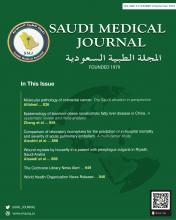18 August 2023 - Launched today by the World Health Organization (WHO), a new Alert underscores the crucial importance of ramping up investment in healthcare services provision in Afghanistan, particularly in the underserved areas where the healthcare infrastructure is severely under-resourced and remain vulnerable due to the ongoing humanitarian crisis.
After decades of instability, exacerbated by severe drought and natural disasters, Afghanistan is currently facing a prolonged humanitarian crisis, with millions of people living with poor or no access to health and food, putting them at a severe risk of malnutrition and disease outbreaks. The vulnerability of women and girls has further intensified, as they face increased obstacles in accessing healthcare due to the ban on education and workforce participation.
The revised Afghanistan Humanitarian Response Plan for 2023 reveals an alarming increase in the number of people in urgent need of humanitarian aid. As per the plan, 28.8 million people in Afghanistan require immediate assistance, up from 18.4 million prior to August 2021. To address the health emergency, 14 million people, including 7.5 million children and 3.1 million women, are currently targeted for health assistance, out of which 8.4 million have already been reached in the first six months of 2023. The healthcare response has been commendable, with a total of 25.7 million healthcare services provided between 2022 and 2023.
However, despite these efforts and without sufficient funding, 8 million people in Afghanistan will lose access to essential and potentially lifesaving health assistance, and 450,000 patients will have little to no access to life-saving trauma care services, including blood transfusions and referrals. In addition, an estimated 1.6 million people with mental health conditions will have little to no access to mental health consultation and psychosocial support.
The WHO Alert highlights the dire consequences that will result if underfunding continues in Afghanistan’s healthcare system. The health sector is facing significant barriers to delivering holistic services to the Afghan people, especially women and children, resulting in fragmentation and increased vulnerability, particularly in underserved areas.
Dr Tedros Adhanom Ghebreyesus, WHO Director-General, stated: “The situation in Afghanistan is grave, and the lack of resources and funding to support health workers and facilities is putting countless lives at risk. Women and children are suffering the most. I call on donors to give generously so that we can continue our life-saving work”.
Dr Ahmed Al Mandhari, WHO Regional Director for the Eastern Mediterranean, urged the international community to unite with WHO to help tackle the ongoing humanitarian health crisis in Afghanistan. He said, “It is our collective responsibility to act now to support the Afghan healthcare system. The consequences of inaction are catastrophic and may leave a lasting impact on the health and well-being of the Afghan people.”
Dr Luo Dapeng, WHO Representative to Afghanistan, expressed concern about the underfunding of the health system and emphasized the need for immediate action, while also taking the opportunity to extend his appreciation to partners. He said, “The situation in Afghanistan is critical, and it demands urgent attention. For a country already affected by decades of conflict, underfunding of the healthcare system is a critical humanitarian concern. The consequences of this underfunding cannot be overstated. I want to thank our current partners who have provided support thus far, but also to call on them to redouble their efforts”.
In the second half of 2023, WHO will continue working with its outstanding partners to tackle critical health emergencies by providing life-saving health interventions, while simultaneously building on the successes observed in 2022. Much work still needs to be done to deliver on WHO’ strategic areas; Protecting people every day; Reaching everyone, everywhere, and putting mothers and children first; Leading the health sector by coordinating the health partners, and drive impact in delivering effective health services in Afghanistan.
Available from: https://www.who.int/news/item/18-08-2023-afghanistan-s-health-system-suffers-critical-underfunding--calls-for-donor-support
- Copyright: © Saudi Medical Journal
This is an Open Access journal and articles published are distributed under the terms of the Creative Commons Attribution-NonCommercial License (CC BY-NC). Readers may copy, distribute, and display the work for non-commercial purposes with the proper citation of the original work.






